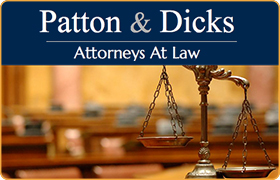Mulberry Criminal Lawyer, Florida, page 6
Sponsored Law Firm
-
 x
x

Click For More Info:
-
Patton & Dicks
465 East Main Street Bartow, FL 33830» view mapCriminal Defense, Criminal Appeals Real Attorneys Fighting For Real People
As Criminal and DUI Attorneys, we defend peoples rights in criminal courts. Find out how our services can help your situation.
863-225-3550
Carolyn A. Stewart
Other, Criminal
Status: In Good Standing *Status is reviewed annually. For latest information visit here
John Carleton Wilkins
Mass Torts, Criminal, Personal Injury
Status: In Good Standing *Status is reviewed annually. For latest information visit here Licensed: 53 Years
P Diane Buerger
Traffic, State Appellate Practice, DUI-DWI, Criminal
Status: In Good Standing *Status is reviewed annually. For latest information visit here
Laura Leigh Snell
Criminal
Status: In Good Standing *Status is reviewed annually. For latest information visit here Licensed: 20 Years
Glen Robert Lansky
Family Law, Divorce & Family Law, Criminal, Accident & Injury
Status: In Good Standing *Status is reviewed annually. For latest information visit here Licensed: 32 Years
Derek T. Matthews
General Practice
Status: In Good Standing *Status is reviewed annually. For latest information visit here Licensed: 8 Years
Laura Snell Johnson
Criminal
Status: In Good Standing *Status is reviewed annually. For latest information visit here Licensed: 20 Years
Kelley W Collier
Criminal
Status: In Good Standing *Status is reviewed annually. For latest information visit here
Diane Buerger
Criminal, Estate
Status: In Good Standing *Status is reviewed annually. For latest information visit here
John Stephen Lynch
Criminal
Status: In Good Standing *Status is reviewed annually. For latest information visit here Licensed: 46 Years

 About MeMore Info
About MeMore Info PracticesPatton & Dicks
PracticesPatton & Dicks